February 2022 Newsletter
President's Message
By Wayne Taylor, Mozley, Finlayson & Loggins, LLP

Dear Fellows:
We are full steam ahead for our annual meeting on May 11-13, 2022, during which we will celebrate the College’s 10th Anniversary. Laura Hanson and Tracy Saxe are planning a fantastic program. Because the Intercontinental Hotel is a historical building in Chicago, built in the roaring 1920s and having once served as the Medinah Athletic Club built by the Shriners, we are going to try to arrange tours for anyone interested. I hope to see all of you in Chicago to celebrate the 10th Anniversary of the College.
We have had many pop-up sessions recently on many topics of interest. Thank you to Nancy Kornegay, Doug Richmond, and Jim Bryan for a very informative session titled “The Use of Extrinsic Evidence to Grant and Deny Defenses.” Kudos to Kelly Gallinger for an insightful talk on Montana’s Policy Language Simplification Act. Finally, my thanks to Adam Fleischer and Paula Litt for their discussion on recent developments on opioid coverage litigation. There will be another pop-up session, on March 17, 2022, concerning eroding coverage limits disputes that will be presented by William McVisk, Marion Adler, and Seth Lamden. Don’t miss this discussion.
Now for the bad news. I am disappointed to inform you that we have postponed the law school symposium we had hoped to hold this month. Unfortunately, Vanderbilt Law School in Nashville was unwilling to hold an in-person symposium with the College due to the recent spike in Covid-19 cases. The College’s Executive Committee agreed that an in-person symposium was preferable and elected to postpone the event. We hope to hold a symposium (in-person) in conjunction with Vanderbilt Law School in the near future.
It has been an honor to serve as the College’s President over the past 9 months. I look forward to seeing you in Chicago for the annual meeting.
All my best,
Wayne
Getting To Know the ACCC’s Kathy Maus

Kathy Maus is a partner at Butler Weihmuller Katz Craig LLP. An insurance carrier attorney, she joined the College in May 2018. A native of Tampa, she earned her undergraduate degree and J.D. from Florida State University. Kathy is a Board-certified Civil Trial Lawyer and has handled coverage or bad faith litigation, at the state and federal level, in Florida, Georgia, Alabama, Mississippi, and Tennessee.
Kathy served on the Boards of the Defense Research Institute and The International Association of Defense Counsel, and as President of the Tallahassee Chapter of ABOTA, the Tallahassee Bar Association, and Tallahassee Women Lawyers. She is a co-chair of the College’s Extracontractual and Bad Faith Claims Litigation Committee.
We asked Kathy to tell us a little about herself so we could get to know her better.
What steered you to a career in the law?
I was an insurance major at FSU and, upon graduation, worked for Aetna Property and Casualty as a commercial liability claims adjuster. After two and half years, I decided I would like to do what my defense attorneys did, so I applied to law school.
What did you do after law school; what was your first job as a lawyer?
After graduating law school, I started with a small, single location, insurance defense firm in Tampa, FL with 19 lawyers. I was number 20. I opened our second office location in 1997, in Tallahassee. After 30 years as a lawyer, I remain with Butler Weihmuller Katz Craig LLP in Tallahassee and we have almost 150 lawyers, with 8 offices in 6 states.
Tell us about your first big insurance coverage case.
I can’t even remember my first! My most memorable was a dec action and counterclaim for breach of contract between my client and a very large insured over SIRs and covered indemnity owed per claim. We had to litigate the facts and circumstances of 50 individual nursing home liability cases in our coverage trial. We tried the case to a federal court, 12-person jury, and received a unanimous defense verdict of no coverage. In fact, my client was awarded money in its favor. Truly a memorable experience.
What is the biggest change you've seen over your career with respect to coverage litigation?
Increased litigiousness, threats of bad faith on almost every claim, mandatory mediation, and increased costs of litigation. These factors reduce the number of cases that my clients are willing to take to trial.
You practice in Florida; what is that like and how has it changed over your career?
I love practicing in Florida. However, Florida is becoming increasingly more liberal (or generous) in jury awards. The increased litigiousness and threats of bad faith in almost every single case causes tremendous job security for me, but fear for my clients.
What do you like to do in your spare time?
I am an avid tennis fan and love to play whenever I get the chance. I do not follow through on dates with myself for the gym, but I will definitely show up for a tennis match!
New Fellows Six Pack
Compiled by Mary Craig Calkins, Partner, Blank Rome
Welcome to our new Fellows. The following “Six Pack” introduces you to six of our newest admittees, representing policyholder- and insurer-side counsel from around the country.
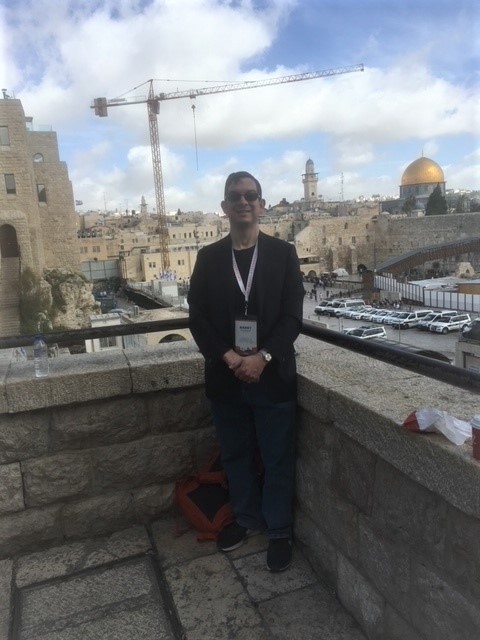
Barry Buchman, Washington DC
Barry Buchman is a partner at Haynes & Boone, LLP in its Washington DC office where he represents policyholders. Barry says:” I am a NYC kid.” He was born in Manhattan and grew up in Brooklyn, although he has been in the capital area since 1994, when Barry came to DC for law school and never left because of the job opportunities. His first job after law school was working at a small, plaintiffs-side personal injury law firm, working on auto accident, premises liability, product liability (non-mass/toxic-tort), and medical malpractice cases. Since then, Barry has handled coverage cases in at least 12 jurisdictions: California state court and the Eastern District of Virginia with its “Rocket Docket” particularly stick out. California state court because of all of the intricate rules under the Code of Civil Procedure and the evidence code, and the Eastern District of Virginia due to its pace (“true to its reputation”). He maintains an active pro bono practice and previously served on the Board of the Washington Lawyer’s Committee for Civil Rights and Urban Affairs. Barry was a classical and jazz trumpet player and an aspiring musician in his former life (“so I love to listen to music—of all types—and to attend concerts—of all types”).
Mary Craig Calkins: What steered you to a career in the law?
Barry Buchman: My interest in politics initially steered me toward law school.
MCC: Tell us about your first big insurance coverage case.
BB: My first big coverage case was a lead paint coverage case in state court in Ohio; we secured several critical summary judgment rulings, including regarding the duty to defend governmental entity suits alleging, among other things, public nuisance causes of action.
MCC: What is the biggest change you have seen over your career with respect to coverage litigation?
BB: I would say the biggest change has been the decrease in the amount of huge, long-tail CGL cases (e.g., asbestos, environmental, lead paint), and the increase in D&O, first-party property, and other cases under more current policies, e.g., cyber and even rep and warranty. However, my practice has not changed that much during the pandemic other than conducting depositions and mediations exclusively through virtual means; I still have participated in multiple court hearings in-person; and, as with many others, I have opened a few COVID coverage matters.
|
|
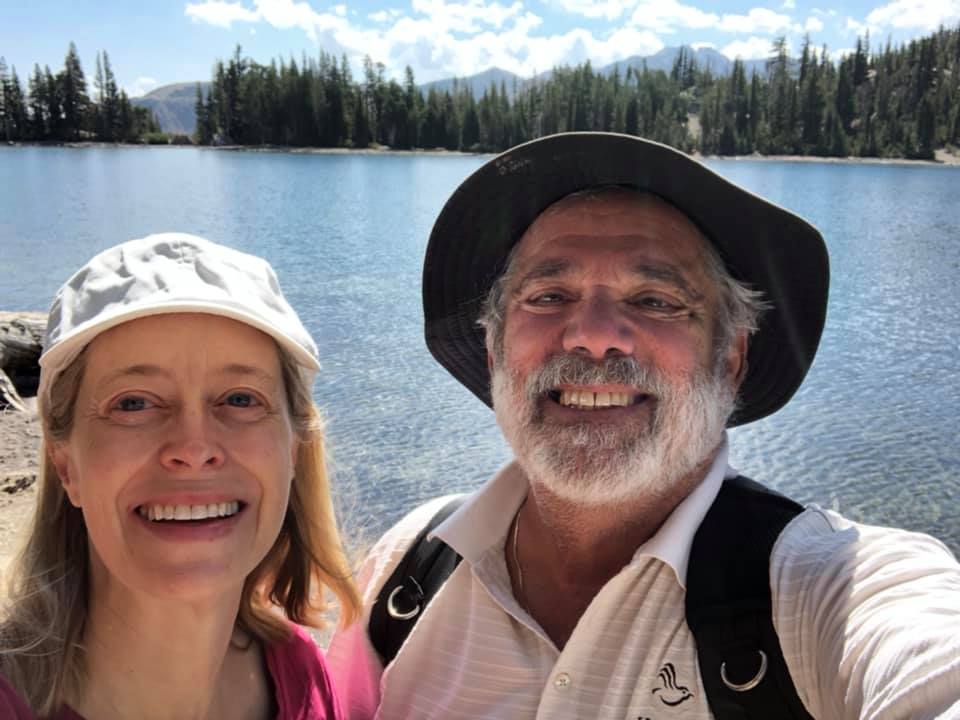
Rina Carmel, Los Angeles, CA
Rina Carmel practices at Anderson, McPharlin & Conners LLP, representing insurers in coverage litigation, analyzing complex issues, claim handling and regulatory compliance. She has been an active advocate in her hometown of Los Angeles for more than 20 years, returning to California after graduating from Bryn Mawr and then the University of Michigan for her MA, followed by her JD. “Palm trees, warm weather most of the time, great for hiking – I wouldn’t want to be anywhere else!” Rina has written coverage opinions under the law of almost all of the 50 states, plus DC and Puerto Rico. She has also been active in the ABA Litigation Section’s Insurance Coverage Litigation Committee for years, acting as a founding member and co-chair of the Section’s ICLC Publications Advisory Board, co-Editor in Chief of the award-winning Coverage Journal, and co-Editor in Chief of the ICLC’s Website. As many ACCC members already know, Rina is “owned” by three cats, and has fostered cats of military on deployment through a wonderful organization, Guardian Angels for Soldier’s Pet. However, being owned by cats did not stop her from taking cooking lessons in beautiful Italy, and she will gladly share recipes for those of us who have time to cook.
Mary Craig Calkins: What steered you to a career in the law?
Rina Carmel: I liked the intellectual challenge and the opportunity to resolve problems. This is still true today.
MCC: What is the biggest change you have seen over your career with respect to coverage litigation?
RC: The erosion of insurers’ attorney-client privilege with internal and outside coverage counsel is one of the most significant and detrimental changes.
MCC: How has your practice changed during the pandemic?
RC: The large number of claims—not just COVID-19 claims—since the pandemic began. Every coverage attorney I know has been swamped with work since the pandemic began.
|
|
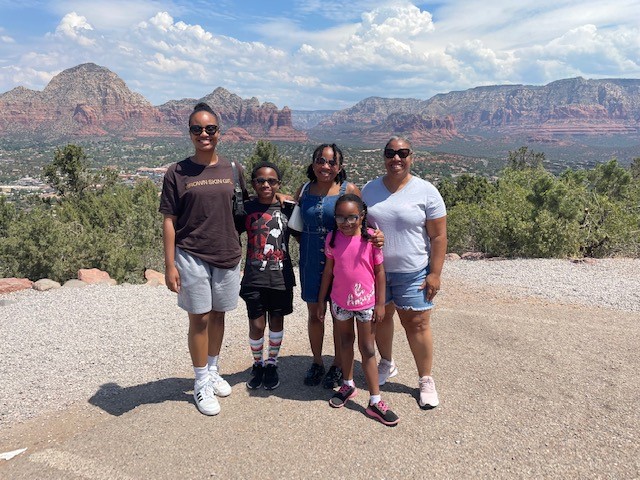
Amber Finch, Los Angeles, CA
Amber Finch is a partner and policyholder lawyer at Reed Smith LLP. Originally from Los Angeles, she grew up in San Diego, went to the Bay Area for college at Stanford, moved back to Los Angeles for law school at USC, and stayed in LA after her husband of 20 years this month proposed. After law school, Amber joined a “Big Law” firm where she had worked as a summer associate. She has handled coverage litigation in at least 10 states (state and federal court, trial and appellate courts) with a fondness for policyholder case law in California and Pennsylvania. Amber is a past President of the Black Women Lawyers Association of Los Angeles. In her spare time, she loves to travel with the family, whether it is for weekend trips to Orange County, Disneyland or trips to Lake Tahoe, or lugging the computer to vacations in Hawaii or Europe. She looks forward to those times while the kids are still at home. Amber does ask what happens when she and her husband become empty nesters [The house stays cleaner longer]. Little known fact: Amber wraps each kid’s Christmas presents using the same roll of wrapping paper; that way, they immediately know which presents are theirs!
Mary Craig Calkins: Tell us about your first big insurance coverage case.
Amber Finch: Gosh. I have to think back. … In my earlier days, I recall many, many coverage cases involving “cool” policyholder clients—production companies, celebrities, apparel lines—the kinds of clients you knew your non-lawyer family members would know. But I guess my first really big insurance case (or cases) where I had a lead role involved the mortgage insurance cases. We represented financial institutions seeking coverage under mortgage and credit policies. These were hard fought cases right smack in the middle of the housing crisis. Scored several big wins against insurers in those cases in federal court which allowed for leverage in other court-filed cases and arbitrations.
MCC: What is the biggest change you have seen over your career with respect to coverage litigation?
AF: Coverage litigation has gotten more sophisticated. It’s always been an “academic” practice: how to fit a square peg into a round hole. But as insurers continue to revise policies, add exclusions, reword policy language, I think it’s been more push and pull, reminiscent of the days of environmental litigation.
MCC: How has your practice changed during the pandemic?
AF: My practice has skyrocketed since the pandemic. I have been heavily involved in COVID-19 related matters – everything from risk mitigation/risk shifting advice and counsel, to negotiating new indemnity agreements, to COVID-19 Business Interruption actions. Certainly a busy time!
|
|

Gregory Gotwald, Indianapolis, IN
Greg Gotwald is a partner and policyholder lawyer at Plews Shadley Racher & Braun LLP. In what he calls a “rare occurrence anymore,” he started at the firm doing coverage litigation, has been there ever since, and says “I love it. I’m a proud coverage geek.” Greg was born and raised in a “stereotypically small Hoosier” town of 12,000 residents in southwestern Indiana, where the high school gym held 7,090. He now lives and works in the “big city” with his wife and family. Greg has worked on matters in—or implicating the laws of—Indiana, Illinois, Michigan, Ohio, Tennessee, Kentucky, California, Maryland, England, Bermuda, and Brazil. Indiana law is generally favorable for policyholders, and Greg and his firm “have helped develop a lot of that law.” In his spare time, his family and his two girls and their various activities take up a lot his “free” time. Greg loves to travel, spend time with friends, and enjoying gardening/landscaping projects where his wife refers to him as a “tomato snob” (he is not sure what she means but thinks Cherokee Purple are the absolute best). Quotable quote: “ICLC in 2019 was the last great adventure before the world shutdown. Seems so long ago.”
Mary Craig Calkins: What steered you to a career in the law?
Greg Gotwald: I was doing an environmental engineering co-op at Toyota as an undergraduate. I learned two things that pushed me into the law. First, I figured out the engineers generally aren’t the decision makers. It’s the businesspeople or the lawyers. I was going to have to go to grad school. I was dealing with government lawyers (even as an engineering student) that did not have much basic fundamental scientific and engineering knowledge in a field that is highly technical. That really frustrated me, so the law it was.
MCC: Tell us about your first big insurance coverage case.
GG: It was an environmental-insurance-coverage matter for about 10 MGPs that had operated at various times from the mid-1800s to around 1960. Not only was it a history lesson, it was a great crash course on countless insurance-coverage issues and how to litigate/resolve large, complex, insurance-coverage matters.
MCC: What is the biggest change you have seen over your career with respect to coverage litigation?
GG: Beyond e-discovery? It’s been the development of specialty policies, e.g., environmental or cyber. Coverages for these were sought in traditional policies (e.g., CGL and/or property), but now you’re litigating the meaning of those traditional policies, as well as a specialty policy.
MCC: How has your practice changed during the pandemic?
GG: It went virtual fast. It also shifted dramatically to more property and business interruption matters.
|
|

Jenny Michel, Lafayette, LA
Jennifer “Jenny” Michel is the managing partner in the Lafayette and New Orleans offices of Lewis Brisbois Bisgaard & Smith, and co-chair of the London Market Group; the Pollution Legal Liability/Environmental Impairment Liability (PLL/EIL) Practice; and chair of the Marine & Energy Practices. She is licensed in Louisiana and Texas and practices regularly in both jurisdictions. She has issued coverage analyses in New York, Oklahoma, Pennsylvania, Florida, California, New Mexico, Mississippi, Alabama, Georgia, Illinois Virginia and the Virgin Islands. Jenny grew up in a very small town of less than 2000 people in a rural parish in central Louisiana. She was hired out of law school by a then-Lafayette (later regional) insurance defense firm where she handled maritime, energy and general liability defense work, becoming involved in coverage matters along the way. Lewis Brisbois is only her second firm. Jenny misses travel (although she somehow managed three weeks in London in October, a week in New York in December, white water rafting in the Grand Canyon, and all the roller coasters, twice, at Universal Studios and Disneyworld). She is a fan of science fiction and fantasy (Game of Thrones, Wheel of Time, “anything Brandon Sanderson”. . . ), “yoga, LSU, The Saints, learning and experiencing new things.”
Mary Craig Calkins: What steered you to a career in the law?
Jenny Michel: My Dad always questioned what grad school I was going to; college was a given. I was a bit squeamish at the sight of blood and as medicine and law were the only options warranting a graduate degree in my small part of the world, I leaned toward law. Nevertheless, I started out in college in journalism, hated having deadlines every week for articles, so changed my major to Public Administration with the intention of going to law school where I would, for the rest of my life, live by deadlines.
MCC: Tell us about your first big insurance coverage case.
JM: I don’t recall my first coverage case. I do recall doing one within the first few years of practicing when the client told by partner it was the best coverage opinion he had ever seen. As I recall he was fairly senior (at least in my 26-ish eyes), so that gave me confidence and convinced my senior partner I should from then forward get most of the coverage work we received. Eventually, I was asked to establish a coverage section in my firm and I managed all the coverage work we did.
MCC: What is the biggest change you have seen over your career with respect to coverage litigation?
JM: The increasing sophistication of the cases and issues presented, as well as the endless creativity of the plaintiffs’ bar in creating new causes of action for things I would never have thought actionable, and pursuing, successfully more than I would have thought, coverage for them.
MCC: How has your practice changed during the pandemic?
JM: I am busier than ever. Phone calls are a thing of the past. Webex, Teams, and Zoom rule the day. Teams and Zoom presentations rather than in person. Seems days are filled with conferences and nights and weekends are the only times to get thinking/analysis done.
|
|

Heidi Vogt, Milwaukee, WI
Heidi Vogt is a shareholder at von Briesen & Roper, S.C., where she is Chair of the Litigation and Risk Management Practice Group and represents insurers. She has represented insurance companies in both state and federal courts for more than 30 years. Heidi is from Milwaukee and still lives in one of its suburbs: “I love the outdoors and Wisconsin has so much to offer so I stayed.” She took a criminal justice course in college and became fascinated with the law. After college at the University of Wisconsin and law school at Marquette University, she worked as an associate at a mid-sized Milwaukee law firm and “worked like a dog” because she “wanted to experience as much as she could” as a young lawyer. Heidi has been in Milwaukee ever since, representing clients on complex matters in just about every jurisdiction in the country except for Hawaii and Alaska, with a few cases in Canada (“and if you have a case in either Hawaii or Alaska, I am your person”). In the summers, she spends time hiking, tending to her garden, boating, swimming and fishing with her husband and two sons. In the winter, she likes to snowshoe on the lake with her dog.
Mary Craig Calkins: Tell us about your first big insurance coverage case.
Heidi Vogt: I was the principal brief writer for General Casualty in the City of Edgerton case which held, in the environment context, a PRP letter was not a suit and remediation costs were not damages. (The case was overturned nine years later.) I was honored to receive what Mike Aylward dubbed as the “Helen Keller Miracle Worker Award” at the DRI conference in Boston the same year the decision was released, 1994.
MCC: What is the biggest change you have seen over your career with respect to coverage litigation?
HV: Bad faith setups have increased dramatically. The stakes are so much higher than they were before. It is so important to be proactive rather than reactive and always think five steps ahead.
MCC: How has your practice changed during the pandemic?
HV: I have been working on a lot of property, workers comp and third-party BI cases related to COVID. Before the pandemic, I was traveling at least two to three times per month for hearings, depositions, meetings and mediations. It has only been in the last three months that my travel schedule has picked up again. While I do not miss the travel, I think in person attendance is much more effective.
|
What would our new Fellows do if they were not nationally recognized coverage lawyers who have recently joined the American College of Coverage Counsel? Who said:
My other career option was a marine biologist. Before kids, my [spouse] and I would scuba dive. Life under the water is so amazing.
If money weren’t an issue, I’d be a philanthropist or a landscaper (but only on nice days). Otherwise, I could see myself teaching college and/or law school. I’ve done some adjunct teaching and really enjoyed it.
I wish I had a ‘cool’ answer like the other new fellows do! Being a coverage lawyer is a great match for a geek like me.
In a heartbeat, I would be a bank teller (that is, of course, if money were no object). I was a bank teller in college and to this day, it remains the best job of all time. Why, you ask? There is no “homework” – you count your drawer at the end of the day, and you close out. Every day is a brand-new day. Quite literally.
If my career had begun differently, I think I would have enjoyed being a trial attorney. I enjoy doing presentations and interacting with audiences, but only figured that out in the last 10 years or so. I endorse the travel agent idea too, though only if I could go on the trip and lead them through the experiences. I would not want to plan things and stay home! Neither would I want to be stuck going to the same place over and over, so not sure that would work long term for me.
I would have been a musician if I had not become a lawyer.

Next Stop, Tokyo? Will A Delaware Ruling Complicate Efforts By Bankruptcy Courts To Compel Insurer Participation?
By Michael F. Aylward, Morrison Mahoney LLP (Boston)

A recent decision of the U.S. Bankruptcy Court in Delaware is sending quiet ripples through the community of lawyers that specialize in insurance claims arising out of mass tort/bankruptcy. Although Judge Shannon’s decision In re TK Holdings, Inc., Adversary Proceeding No. 20-51004 (Bankr. D. Del. Dec 20, 2021) has received little notice to date, it bears watching as it proceeds on appeal to the U.S. District Court and, ultimately, the Third Circuit, as it has significant implications, both for jurisdictional issues involving foreign insurers, as well as the ability of mass tort bankruptcy trusts to recover against such insurers.
At the heart of the controversary is Takata Corporation, once famous for being the leading manufacturer of air bags worldwide and now infamous for sparking the largest product recall in U.S. history. Faced with a growing number of personal injury claims and demands brought against it by auto manufacturers and related companies, Takata filed a Chapter 11 Petition for Reorganization in the U.S. Bankruptcy Court in Delaware in 2017. In early 2018, a Confirmation Order and Plan was approved by the Bankruptcy Court that, among other provisions, created the PSAN PI/WD Trust to marshal the Estate’s assets, including insurance recoveries, and disburse payments to accident victims.
The foregoing will sound neither new nor surprising to the many ACCC Fellows have played a role in the numerous mass tort bankruptcies that have been filed in the four decades since Johns Manville and W.R. Grace filed their groundbreaking Chapter 11 petitions in 1982. What sets In Re TK Holdings apart, however, is the fact that Takata Corporation was a Japanese corporation and its liability insurance was placed almost exclusively with Japanese companies, notably Tokio Marine and Mitsui Sumitomo.
Over the years, a dispute had arisen between Takata (and now the Trust) with respect to the manner in which claims may be presented under these policies. In particular, the Trust has taken the position that it may seek to exhaust primary insurance and attach excess policies based upon the scheduled value of claims. The principal authority for this proposition is UNR Industries v. Continental Cas. Co., 942 F.2d 1101 (7th Cir. 1991) in which an excess insurer had argued that the limits underlying its coverage should only be eroded by the amounts that were actually paid to asbestos victims with valid claims for the period in question. The Seventh Circuit disagreed, noting that this approach would confer a “windfall” on CNA at the expense of the asbestos victims:
The reason for the potential windfall is that UNR paid the Trust only a portion of the asbestos victims' actual damages in the bankruptcy proceedings. This discounting of the asbestos victims' damages had nothing to do with the merits of their claims. The discounting merely reflected the amount of UNR's assets that the asbestos victims could reach. CNA may profit greatly from UNR's bankruptcy if its obligations are based on the arbitrarily discounted amount that the asbestos victims actually receive from the Trust.
Under these circumstances, the Seventh Circuit ruled that a judgment had entered against UNR in the amount of $150 million that was a “loss” triggering CNA’s excess insurance coverage.
Mitsui Sumitomo, which provided excess coverage to Takata as well as a single year of primary insurance with high deductibles and SIRs, had advocated a different view, relying on cases such as Fuller-Austin Insulation Co. v. Fireman’s Fund Ins. Co., 135 Cal. App.4th 958, 38 Cal. Rptr. 3d 716 (2d Dist. 2006) and Flintkote Company v. Aviva PLC, 177 F. Supp. 3d 1165 (M.D. Cal. 2016), in which courts had distinguished UNR and instead have held that an insurer's obligation to pay damages should reflect sums that are actually paid to claimants.
On September 22, 2020, MSI denied coverage for the Trust’s claim on the basis that the MSI Policies had not yet been triggered because their underlying limits had not been exhausted and that the tender submitted by the Trust was exaggerated because reflected scheduled values and not the payments that had actually been disbursed. In response, the Trust immediately filed a Motion to Enforce Plan and Confirmation Order in the Bankruptcy Court, arguing that MSI's position was in direct conflict with the creation and empowerment of this Trust, pursuant to the Bankruptcy Court's 2018 Confirmation Order. Accordingly, it asked the court to order MSI “to pay the full value of the PI/WD Claims and that (i) [MSI’s] obligations to indemnify the Trust, and (ii) the exhaustion of any self-insured retentions or deductibles shall not be measured by amounts paid by the Trust in connection with the PI/WD Claims.”
The decision to present this claim in the guise of a Motion to Enforce was a curious one but perhaps dictated by the Trust’s effort to tiptoe around an inconvenient endorsement in the MSI policies requiring that “any dispute pertaining to the interpretation, application, or construction of this insurance contract shall be resolved and filed solely in a Japanese court; and the law applicable to resolution of such dispute shall be the law of Japan.” Rather than filing an adversary proceeding in the Bankruptcy Court, which would have conflicted with this endorsement, the Trust argued that MSI was already subject to the court’s jurisdiction, having participated in negotiations leading up to the final Confirmation Order in 2018, and that it was only asking the court to enforce an important part of the Plan (the use of scheduled values to allocate payments) rather than any interpretation of the actual policies.
MSI opposed the motion, asserting that what the Trust was seeking was a declaratory judgment action that could only be considered by the Bankruptcy Court in the context of an adversary proceeding. Judge Shannon agreed and issued a letter ruling on October 23, 2020, denying the Trust's Motion and declaring that any such claim must be brought through an adversary proceeding. On November 5, 2020, the Trust initiated an adversary proceeding on the sole issue of what methodology should be applied in valuing its claims pursuant to the MSI policies. MSI filed a comprehensive motion to dismiss, raising numerous jurisdictional and substantive coverage defenses. After months of deliberation, Judge Shannon granted MSI's motion on December 21, ruling that this was a non-core matter and that, as such, established Third Circuit jurisprudence mandated that the forum selection clause be given effect. The Trust has since appealed to the U.S. District Court.
The Trust had argued that it was only asking the Bankruptcy Court to enforce the "plain language" of the Takata Plan and Confirmation Order and that its proceeding therefore fell within its "core" bankruptcy jurisdiction under 28 U.S.C. § 157(b)(2) as involving either "matters concerning the administration of the estate or other proceedings affecting the liquidation of the assets of the estate." Judge Shannon disagreed, however, declaring that insured's coverage disputes generally arise under state law (or in this case, the law of a foreign jurisdiction) and do not generally fall within the jurisdictional language of Section 157(b)(2).
The court also agreed with MSI that this claim was not a proceeding that could only arise at a bankruptcy case because it required interpretation of the provisions of the Plan and Confirmation Order, holding instead that it was, in effect, a request for declaratory relief concerning interpretation of insurance policies that arise outside of a bankruptcy case. As with cases such as In re Stone & Webster, Inc., 367 B.R. 523 (Bankr D. Del. 2007) and In re Longview Power, LLC, 515 B.R. 107 (Bankr D. Del. 2014), Judge Shannon concluded that this insurance coverage dispute was not a core proceeding that could only arise in a bankruptcy case.
While the Trustee takes great pains to complicate this dispute, the issue presented—which the Debtors and the Trustee have been aware of since at least the filing of the MSI Plan Objection—is quite simple: the parties disagree about (a) the nature and scope of MSI’s coverage obligations under the MSI Policies, pursuant to Japanese law, and (b) the enduring validity and controlling effect of the Jurisdiction Clauses and the Choice of Law Clauses. Stated differently, this is overwhelmingly an insurance coverage dispute, which are almost always adjudicated or otherwise resolved in forums other than the bankruptcy court, even when such disputes arise during or otherwise in connection with a pending chapter 11 bankruptcy case. Indeed, the very cases upon which the Trustee relies in its Motion in support of its coverage arguments are cases where a court other than the bankruptcy courtdetermined the impact of a confirmed chapter 11 plan on the respective insurer’s coverage obligations. The Trustee, as successor to the Debtors, is being treated no differently than any other entity (bankrupt or otherwise) who has failed to satisfy deductible and/or self-insured retention provisions of an MSI-issued insurance policy.
The court was also not persuaded by the Trust's argument that the bankruptcy case has fundamentally altered MSI's obligations under the policies such that the matter could only arise in the context of a bankruptcy case. In fact, the court found that this argument conflicted with the fact that during the negotiations for the Confirmation Order and Plan, an insurance neutrality provision had been inserted, affirmatively stating that neither the Plan or Confirmation Order could impair, alter, supplement, change, expand, decrease, or modify the rights and obligations of the insurers or debtors. The court concluded, therefore, that "determining coverage under the MSI Policies is not an issue that arises only in the context of the bankruptcy case. The issue regarding how the plans allow the paid claim amounts affect MSI's coverage obligations first requires analysis of the parties' rights and obligations under the terms of the MSI policies."
Having concluded that this insurance dispute was not within its core jurisdiction, the Bankruptcy Court turned to MSI's argument that the action should be dismissed for improper venue pursuant to Rule 12(b)(3). As a preliminary matter, Judge Shannon observed that the Third Circuit had ruled in Giuliano v. Genesis Financial Solutions, 544 F.3d 196, 206 (3d Cir. 2008) that forum selection clauses are binding upon bankruptcy courts in non-core proceedings. The court declared that when parties have contracted in advance to litigate disputes in a particular forum, a court should not unnecessarily disrupt the parties' settled expectations. Therefore, forum selection clauses are considered to be "prima facie valid" and should be enforced unless shown to be unreasonable under the circumstances.
The Trust had argued that giving effect to this forum selection clause would in fact be unreasonable because "there is a public policy requiring the U.S. Bankruptcy Courts to resolve disputes under the U.S. Bankruptcy Code or to interpret the Plan and Confirmation Order in light of U.S. Bankruptcy Law. The court was unpersuaded:
The issue raised in the Complaint first requires interpretation and analysis of the MSI Policies under Japanese law, rather than interpretation of the Plan or Confirmation Order. The MSI Policies were negotiated pre-petition between Japanese companies and require application of Japanese law. Therefore, public policy would fall in favor of enforcing the forum selection clause to permit the terms of a Japanese insurance policy to be determined in a Japanese court interpreting Japanese law.
The court acknowledged that the Trust had never contracted to litigate in Japan but observed that, as Takata’s assignee, it not only stood in the shoes of the debtor but had since negotiated terms of the Confirmation Plan that included “Insurance Neutrality” and “Insurance Rights Transfer” provisions that made clear that its rights to coverage from Takata’s insurers were subject to the same limitations as would have applied to Takata, including these forum selection and choice of law provisions.
The Trust has since appealed this ruling to the U.S. District Court for the District of Delaware and may well feel compelled to proceed to the Third Circuit if it fails in the District Court. Meanwhile, Judge Shannon opinion presents a challenging obstacle to similar claims that mass tort trusts may want to pursue against foreign insurers in these cases.
Lessons from Olde Tymes: Conflict Issues With Insurer-Retained Defense Counsel: The Turncoat Plaintiff’s Lawyer Hired By An Insurer To Represent The Defendant
By By Neil Posner, Much Shelist, P.C. and John Bonnie Weinberg Wheeler Hudgins Gunn & Dial (co-chairs of the ACCC’s Professionalism and Ethics Committee)
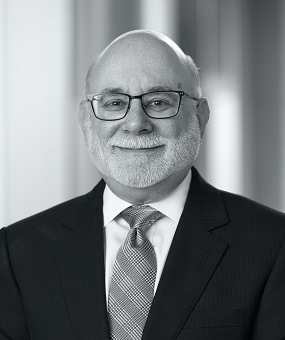 |
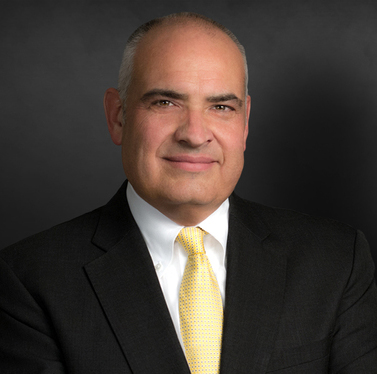 |
| Neil Posner |
John Bonnie |
Elmer Pilling was innocently riding a horse-drawn wagon on the streets of Providence, Rhode Island just after the turn of the Century when he was hit by a “so called” taxicab, negligently operated by Clarence Benson. Pilling’s injuries required $25 in medical expenses, and he sued Benson for damages. Pilling v. Benson, 34 R.I. 519, 84 A. 1005 (1912). A jury awarded Pilling $4,000, and Benson appealed, contending among other things that Pilling had released his claims against Benson long before the suit was ever filed. Alternatively, Benson contended that the verdict was excessive and that a new trial was in order.
Pilling had hired a lawyer before filing suit and indeed executed a release of Benson on the advice and recommendation of that lawyer. In exchange, Pilling received $200, and his treating doctor received $25. Unknown to Pilling, however, after his lawyer agreed to the representation of Pilling, this same lawyer was hired by Benson’s insurance carrier to defend Benson in different suits by other passengers allegedly injured in the very same accident that injured Pilling. This representation by Pilling’s lawyer of Benson was not disclosed to Pilling, who claimed when learning of it that the settlement he received was wholly inadequate, and that all along, his lawyer had been acting for the benefit of Benson and his insurer - including the lawyer’s recommendation that Pilling settle.
The trial court found no basis for upsetting the verdict, and Benson appealed. Parsing the evidence on appeal, the Rhode Island Supreme Court determined as a matter of fact that Benson’s retention of Pilling’s lawyer occurred only after the lawyer agreed to represent Pilling (rather than before as Pilling claimed), and also found no basis to conclude that the lawyer was guilty of misrepresentation, fraud or intentional wrongdoing; that he was consciously influenced my motives hostile to Pilling; or that he deceitfully neglected to inform Pilling of his retention by Benson.
According to the Supreme Court, however, the lack of intentional wrongdoing or bad motive was inconsequential. The lawyer’s agreement to represent Benson and his carrier after previously agreeing to represent Pilling required disclosure to Pilling:
The office of an attorney is one of the highest trust. The client who seeks the advice and assistance of an attorney is entitled to place dependence without question upon that attorney’s loyalty. The law recognizes this condition to be for the public good; and the law, the standing of the profession, and its value to the community, requires that no act of the attorney shall be sanctioned which is inconsistent with that relation of trust and confidence.
Pilling v. Benson, 84 A. at 1006. The court found that knowledge of the attorney’s representation of Benson “might have affected very materially the weight which [Pilling] gave to the advice of said attorney in favor of the compromise and release.” Id. The court rejected Benson’s invitation to explore whether his retention of Pilling’s lawyer actually influenced the attorney’s settlement recommendation to Pilling. There was no reason to do so according to the court because the non-disclosure created an absence of “real consent” to the settlement by Pilling, rendering the earlier release invalid as a matter of law.
The court noted the alleged “good faith” of Benson and the lawyer in connection with the Pilling settlement, which it acknowledged was negotiated by the carrier on Benson’s behalf (implicitly suggesting that it wasn’t negotiated by the lawyer on Benson’s behalf). In this regard, the court said that the heavy role of the insurance company in accomplishing the settlement “bears upon the question of the good faith of the attorney and of the defendant, and may exonerate them from the charge of intentional wrongdoing”. Id. at 1007. But none of it changed the fact that Pilling “was entitled to a disclosure of every material fact in the possession of the attorney” id., which irrefutably did not occur. The lawyer at least owed an obligation to tell Pilling about the other representation, and he didn’t.
Pursuant to the now-applicable ABA Model Rules of Professional Conduct, Rule 1.7 controls: representation of a client is outright prohibited if it involves a “concurrent conflict of interest”, defined to include a situation in which “the representation of one client will be directly adverse to another client” or where “there is a significant risk that the representation of one or more clients will be materially limited by the lawyer’s responsibilities to another client . . . .” Furthermore, where the representation would involve “the assertion of a claim by one client against another client,” consent is not even possible, and the conflict is non-waivable. The lawyer could not ethically represent both Pilling and Benson under the circumstances since Pilling had an interest in maximizing the settlement paid by Benson (and his carrier) and Benson had a directly contrary interest in minimizing the settlement paid by Benson and the carrier.
Had the overture to Pilling’s lawyer by the carrier about representation of Benson occurred only after the consummation of the settlement on behalf of Pilling, it might have withstood scrutiny. Addressing duties to former clients, Model Rule 1.9(b) provides that a lawyer who has represented a client in a matter may not represent another person “in the same or a substantially related matter” under circumstances where the new client’s interests “are materially adverse to the interest of the former client,” absent informed consent. While the actions by the other taxicab passengers may not have constituted the “same matter” as Pilling’s action, they were most certainly “substantially related” within the meaning of the Rule. However, Benson’s interests might not have actually been “materially adverse” to Pilling’s interests in the context of a settlement concluded before the attorney’s representation of Benson in the other matters. Even then, disclosure and consent would certainly be the safer course, if for no other reason than to affirmatively demonstrate that nothing was happening in the shadows, and that the budding relationship between the lawyer and Pilling’s former adversary began only after rather than before concluding his representation of Pilling. Either way, Rule 1.9(c) would prevent the lawyer from using information he obtained from Pilling to Pilling’s disadvantage in his representation of Benson, and would require the lawyer to maintain confidences and preserve the privilege created in his representation of Pilling.
The Carrier-Retained Lawyer Settling Without The Defendant’s Express Consent
Countryman v. Breen, 147 Misc. 246, 263 N.Y.S. 603 (1933) involved the opposite circumstance: the propriety of the defendant’s lawyer agreeing to a settlement in which the defendant questioned the lawyer’s authority to do so.
There, Gershon and Cora Countryman sought damages for an auto accident allegedly caused by the negligence of Donald Breen. Breen was insured, and the carrier appointed counsel (Reynolds) to defend him. According to Breen, and without being consulted in advance, Reynolds and the claim adjuster informed him that the action against him was being settled for $3,500. Trouble arose when the carrier became insolvent before the Countrymans were able to cash the settlement check, at which point the Countrymans sought to hold Breen personally responsible for the settlement.
Breen contended that he was not bound to pay the settlement on the basis that Reynolds was not his attorney, and that Reynolds acted solely as the attorney for the insurer. He testified that he took no part in the negotiation or consummation of the settlement and gave no approval for it. Reynolds actually confirmed this testimony by Breen.
The trial court found substantial evidence to the contrary, however, including that Breen swore to the truth of the Answer Reynolds prepared; that Reynolds was held out to be Breen’s lawyer without objection by Breen; and that Breen was in the courthouse awaiting trial when the settlement was announced, and did not repudiate it. The court further noted that there was an absence of evidence the settlement was unreasonable; that there was no suggestion of fraud; and that Breen waited more than a year after the insurer’s insolvency to dispute the propriety of the settlement.
The court acknowledged the structure of the policy issued to Breen, which gave the carrier the ability to settle, and which prohibited the insured from interfering in any settlement deemed appropriate by the insurer. In the court’s view, however, Breen’s compliance with the policy’s terms revealed his intention to invoke its benefits such that he could not disavow that Reynolds was his lawyer, appointed under that same policy. Specifically, since Breen asked for a defense from the carrier, which he received via Reynolds, proceeded to swear to the pleadings Reynolds prepared, and didn’t object to the settlement announced by Reynolds on Breen’s behalf, he effectively agreed to it and was even bound by the terms of payment:
[T]he fact that the settlement was approved by the insurance company does not relieve [Breen] (…having authorized such a course by the very terms of the policy) from liability on account thereof. He was at liberty, at the risk of course of forfeiting rights under the policy of insurance, to discharge his counsel. Any limitation of his freedom in this regard was of his own creation, and in the absence of any allegation of fraud, misrepresentation, or unethical dealing on the part of his counsel before the court, he should not now be heard to repudiate their settlement announced in open court.
147 Misc. at 251. The court found that any other outcome would cast the consequences of the insolvency on the plaintiffs (who it considered to have no responsibility for it) and further observed that had the settlement not been reached, there would have been a directed verdict for the plaintiff, resulting in a judgment for which Breen would have been responsible regardless of the insolvency of the carrier. Between Breen not acting promptly to repudiate the settlement and there being no fraudulent or unethical conduct on the part of Reynolds, the court said Breen could not be heard to “complain.”
The New York Supreme Court Appellate Division reversed, however, specifically rejecting the trial court’s reasoning about Breen’s obligation. Evaluating the same evidence and the same policy terms, the appellate court first observed that an attorney cannot settle a suit without the client’s consent, and further noted that Reynolds was counsel for the insurance company as well as Breen. Consequently, Breen’s consent (whether express or implied) was required for Reynolds to act for Breen (as distinguished from his actions for the insurer). Turning to the insurance policy, the court said that it was “obvious” why the carrier retained absolute authority with respect to the settlement of any action, and that by the terms of the policy, Breen could not “compel the insurer to settle nor prevent it from doing so.” Countryman v. Breen, 271 N.Y.S. 744, 747 (N.Y. App. Div. 1934).
While acknowledging that Breen was told of the settlement and didn’t protest for more than a year, the Appellate Division concluded that this was neither an estoppel nor an admission, since Breen had no reason to protest or complain about something to which he had not stipulated or agreed to pay.
[Breen] did not consent then or thereafter that any judgment should go against him. He was of course willing that his insurer should compromise the claims against him. He could not prevent such a compromise if he tried . . .
Id.. Although the court found no basis for a judgment to be entered on the settlement against Breen personally, the appellate court noted that the Plaintiffs would recover in full or in part “one way or the other,” id. at 748, because their action had been returned to the calendar for trial and had filed claims with the superintendent of insurance.
Today’s Model Rules do not speak specifically to the unusual turn of events in Countryman. By all indications, Reynolds was properly acting as counsel for Breen in the time frame in which the settlement was agreed to, albeit perhaps without fully consulting with Breen. Undoubtedly, if Reynolds had asked Breen whether he authorized Reynolds to announce the settlement the insurer agreed to pay, he would have said yes. Breen’s later contention that Reynolds was only the lawyer for the insurer and not for Breen, in that circumstance, could have been overcome merely by asking Breen if he agreed with the settlement. It begs the question what Reynolds would or could have done, however, if Breen answered “no” despite the policy enabling the insurer to settle without Breen’s consent.
Model Rule 1.8 identifies specific rules for conflicts of interest in the representation of current clients, including Rule 1.8(f). Under this Rule,
A lawyer shall not accept compensation for representing a client from one other than the client unless:
(1) the client gives informed consent;
(2) there is no interference with the lawyer’s independence of professional judgment or with the client-lawyer relationship; and
(3) information relating to the representation of a client is protected as required by Rule 1.6.
The comments to Rule 1.8(f) expressly acknowledge the common circumstance of a liability insurance company appoint a lawyer to represent an insured, where the carrier will pay the lawyer in whole or in part. The comments merely repeat, however, that under such circumstances the arrangement cannot interfere with the lawyer’s exercise of independent professional judgment and there is informed consent by the client/insured. This is consistent with Model Rule 5.4(c), which prevents a person who pays a lawyer to render legal services for another from directing or regulating the lawyer’s professional judgment.
The principles underlying Rules 1.8(f) and 5.4(c), although not codified at the time Countryman was decided, appear to have been considered by the court. Reynolds no doubt believed that the settlement was in Breen’s interests and, as noted by the court, there was no suggestion of untoward conduct on the part of Reynolds in announcing a settlement that Breen at least implicitly agreed to. Consequently, there was no interference with the professional relationship.
The separate and more important question was Breen’s informed consent. The decision can be read as implicit consent to the lawyer’s actions, but a lack of effective consent to the settlement, and certainly not an agreement to be personally responsible for the settlement amount. In this regard, Rule 1.8(f), on its face, does not require a client’s informed consent to be in writing. Unanswered by Countryman, however, is the impact of a lack of consent to settlement by a client/insured where the insurance carrier performs and pays the settlement, under a policy giving it the absolute right to do so.
“The Incredible Mr. Appleman” — a Biography of John Appleman
Stephen Pate, Co-Chair, Property Insurance Group, Cozen O'Connor, has published a biography of John Appleman, which has now been published in four journals. Every member of this organization owes a debt to Appleman, who wrote “Appleman on Insurance” and was, in essence, the founder of the American Insurance Bar. He did many things. He wrote a Western novel, dabbled in the paranormal, and wrote poetry. His greatest mark was an attorney, and I describe his greatest triumph—as a plaintiff’s attorney—as well as discussing his last case, in which the words of his treatise were turned against him. We all need to remember him.
Click here to read the bio.
Member News
Pate Recognized by Texas Supreme Court Historical Society
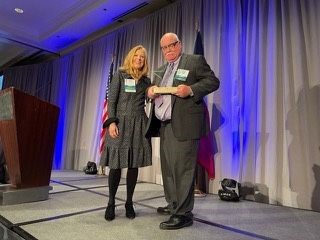
Steve Pate, Cozen O’Connor, received the Texas Supreme Court Historical Society President's Award at the Annual Hemphill Dinner in Austin in December. All members of the Texas Supreme Court were there, along with many of the Federal judiciary and many state judges. Pate is a Trustee of the Society and an Editor of the Society’s Journal. During the award presentation, he was recognized for the many lead articles he has written and his presentations to such bodies as the Texas State Historical Association
Plitt Named Top Lawyer
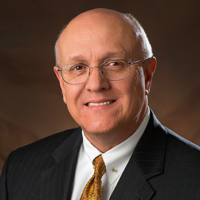
Steven Plitt, The Cavanagh Law Firm, was named on the list of Top 100 Lawyers in Arizona for 2022. Plitt handles complex, high-exposure disputes and bad faith cases. He was inducted as a Fellow into American Law Institute.
Do you have news to share? We’ll publish news of achievements, firm changes, awards, wins, etc. If you are quoted or published, send that as well. We are looking for content about our members to include in Member News, Article of the Month, and social media posts. Send your information to [email protected].
Call for ACCC Historical Images

In New Orleans, at a luncheon after forming the College: Lewis Collins, Bruce Celebrezze, Dan Kohane & Ned Currie
The American College of Coverage Counsel will celebrate its 10th anniversary in 2022.
In preparation for this exciting event, one of ACCC's founding members, Steve Pate, has been tasked with collecting historical photos. The images will be included in a commemorative album that will be printed and made available for distribution at the 2022 ACCC Annual meeting.
If you have photos from past ACCC meetings, symposiums or other events, or any other images relating to the American College of Coverage Counsel that you would like to share for inclusion, please send them to Steve Pate at [email protected].
For any questions, please contact Steve by email or phone at 832-214-3957.
Thank you in advance for taking part in the ACCC anniversary celebration!
Call For Volunteers
Want to become more involved in the ACCC? Join a committee! We are actively seeking volunteers to join our committees:
ADR
CGL/Excess Liability Insurance
Communications
Cyber Insurance and Computer Crime
D&O and Management Liability
Emerging Risks
Extracontractual and Bad-Faith Claims Litigation
First-Party Insurance
Outreach
Professional Liability
Professionalism and Ethics
Regional Meetings
Click here to volunteer.
Nominate a Fellow
The Membership Committee routinely vets prospective Fellows of the College. In order to maintain the prestige of membership, the only entry to the College is through a referral from a current member (someone who is NOT at the same firm as the nominee).
We are seeking nominations of qualified candidates who practice law in the U.S. and Canada. The Board of Regents recently approved the consideration of candidates from Bermuda as well.
Qualified candidates are lawyers engaged in the private practice of law, with a concentration primarily in the fields of insurance coverage, bad faith and/or extracontractual claims, licensed to practice law in the highest court of their respective states, and who have engaged substantially in the practice of insurance law for at least 15 consecutive years. Time spent as a judge or law clerk may be considered in determining whether the 15-year requirement has been satisfied.
Nominations can be sent to [email protected]. Please include the nominees name, basic contact information, and link to their firm bio. The Membership Committee will conduct an initial vetting, including contacting other Fellows for references, and will then send an application to the candidate as a next step. If a candidate is nominated and does not progress to the application stage, the nominator will be informed.
Welcome New Fellows!
Roberta Benson
The Benson Firm PLLC
Austin, TX
Marc Gravely
Gravely Attorneys & Counselors
San Antonio, TX
Alycen Moss
Cozen O'Connor
Atlanta, GA
Harold Watson
Chaffe McCall
Houston, TX
Michael Young
HeplerBroom LLC
Saint Louis, MO
|















